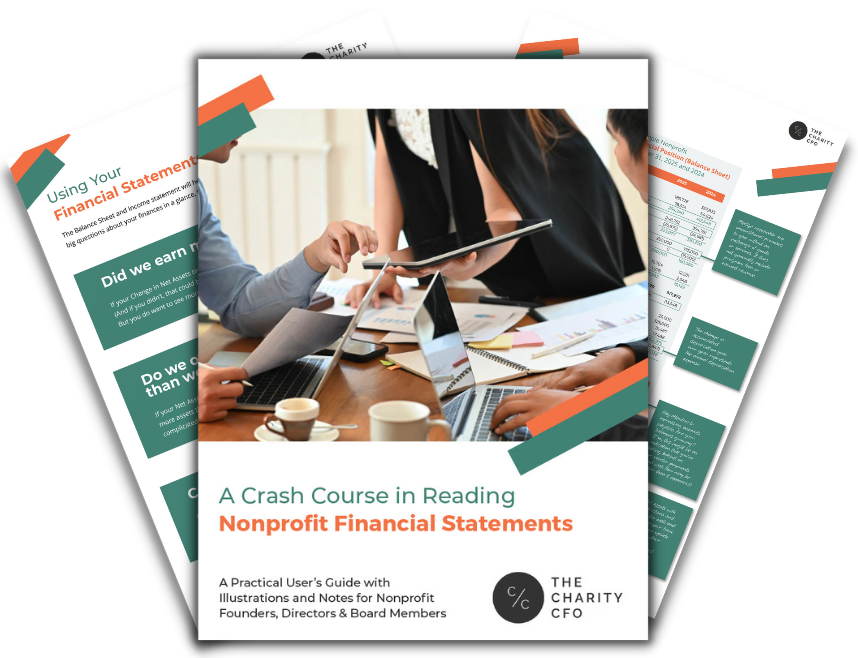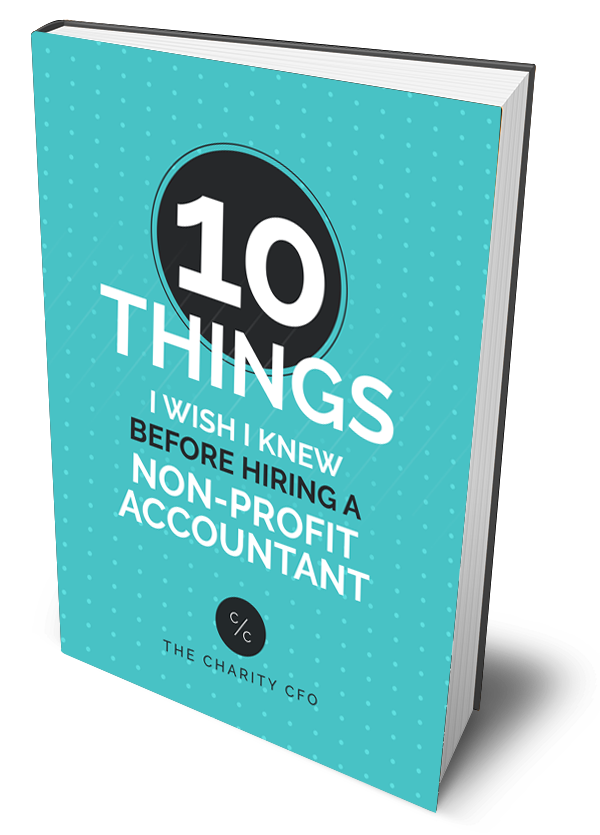The finance director role is critical to the success of any nonprofit, making it one of the most important hires an organization can make. They are responsible for the financial health of the organization. They create and maintain financial records, prepare financial reports, and oversee the organization’s budget.
Financial managers often work closely with the organization’s executive director to ensure that the organization’s financial needs are met and help drive best financial practices within the organization. They handle all payroll and accounting functions and manage investments and fundraising efforts.
If you are looking for a finance director, it is important to find someone who is not only qualified for the position but also fits well with the organization’s culture. Here’s a look at some of the qualifications you should look for in a nonprofit finance director and tips on how to verify those qualifications:
Qualifications For A Nonprofit Finance Director
1. A Bachelor’s Degree In Accounting, Finance, Or A Related Field Is Required.
This is the minimum educational requirement for most nonprofit finance director positions. A bachelor’s degree will give the candidate a strong foundation in accounting and finance principles, which is essential for the role.
They should demonstrate an extensive understanding of accounting and finance regulations and best practices for financial management in a nonprofit setting.
Why this is important
A bachelor’s degree in accounting, finance, or other related fields prepares them to analyze financial data and advise the nonprofit on financial decisions. This background helps them provide oversight for and manage all forecasts, budgets, and investments for the organization.
How to verify
The best way to verify that a candidate has the necessary educational qualifications is to request a certified copy of their transcript from their college or university. If in doubt, you can always contact the school to confirm that the candidate did indeed graduate with the degree they claim to have.
2. Certification As A Certified Public Accountant (CPA), Chartered Financial Analyst (CFA), Or Certified Financial Planner (CFP) Is Preferred.
While not always required, certification from one of these professional organizations is highly preferred for finance director positions. These certifications demonstrate that the candidate has the necessary skills and knowledge to perform the job effectively.
CFAs are best known for investment analysis and wealth planning, CPAs for tax preparation and financial statement auditing, and CFPs for financial planning. Working with a CPA with additional certification, such as a CFA or CFP, can bring a well-rounded perspective to the finance director role.
Why this is important
Nonprofits are subject to a unique set of financial rules and regulations. A CPA, CFA, or CFP designation shows that the candidate is familiar with these rules and regulations and is, therefore, better suited to advise the organization on financial matters. CPAs. CFAs and CFPs will provide a more micro analysis of how the organization’s finances and assets are managed and allocated.
How to verify
The best way to verify that a candidate has the necessary certification is to request a copy of their certificate from the issuing organization.
3. 5+ Years Of Experience Working In Accounting, Finance, Or A Related Field Is Required.
You want to work with someone with extensive industry-specific experience. Look for a nonprofit finance director with at least five years of experience working in accounting, finance, or a related field.
The candidate should be able to show that they have progressively more responsibility in their previous roles, as this will demonstrate their ability to take on more complex tasks.
Why this is important
Work experience ensures the candidate can hit the ground running and be an effective team member from day one. It also allows them to bring their own unique perspective and insights to the role.
How to verify
Candidates should have a clear career progression that shows they have taken on more responsibility over time. This progression should be evident from their resume and/or LinkedIn profile.
4. A Strong Background In Nonprofit Management
This is quite a common requirement, as most organizations will want to see that the candidate has some experience working in the nonprofit sector. This experience is essential for understanding the unique financial challenges that nonprofits face.
Why this is important
The success of a nonprofit organization depends on its ability to deploy its financial resources efficiently. The finance director plays a vital role in ensuring that the nonprofit uses its resources and assets in the most effective way possible.
How to verify
The best way to verify that a candidate has the necessary experience is to request references from previous employers. These references should be able to attest to the candidate’s experience and skills.
5. Experience In Integrating IT Systems
Today, technology is at the center of most businesses—and nonprofits are no exception. As nonprofits become increasingly reliant on technology, finance directors must have experience working with and integrating various financial systems and software programs. This experience will be invaluable in ensuring that the organization’s finances are managed effectively and efficiently.
Why this is important
With the right technology in place, nonprofits can save time and money by automating various financial tasks. Expertise in various technology systems also helps improve bookkeeping and accounting productivity, accuracy, and compliance.
How to verify
When reviewing a candidate’s resume, look for evidence of experience working with various financial software programs and systems. You can also ask them specific questions about their experience during the interview process.
6. Robust Analytical Skills
A finance director must be able to understand and analyze complex data sets. They should also be comfortable working with spreadsheets and other financial software programs.
Why this is important
Analytical skills are critical for evaluating financial data and making sound decisions about where to allocate resources.
How to verify
Verify by asking the candidate to describe a time when they had to analyze complex data in their previous role. You can also ask them specific questions about their experience working with spreadsheets and financial software programs.
7. Excellent Communication Skills
The ability for communication, with various stakeholders, is essential for the finance director role. The candidate should be able to distill complex financial information into layman’s terms and present it in a way that is easy to understand.
Why this is important
The finance director is often the bridge between the accounting/finance department and other departments within the organization. As such, they need to be able to clearly communicate financial information to people with non-financial backgrounds.
How to verify
Communication skills can be difficult to assess, but you can get a good sense of a candidate’s ability by paying attention to how they communicate during the interview process. Do they speak clearly and concisely? Are they able to explain complex concepts in simple terms?
8. Leadership And Management Skills
In addition to being an expert in financial matters, the finance director must also be a competent leader and manager. They should have experience leading and motivating teams, as well as experience developing and implementing strategic plans.
Why this is important
The finance director is responsible for leading the organization’s finance team and ensuring it functions effectively. They must also be able to work closely with other department heads to develop and implement strategic plans that achieve the organization’s goals.
How to verify
Do they exhibit high emotional intelligence? Are they able to take charge and motivate a team? Do they have experience leading and managing people? These are all qualities that will be important in a successful finance director.
9. Strategic Thinking
The finance director should be able to think long-term, anticipate future trends, and develop strategic plans accordingly.
Why this is important
The finance director plays a key role in developing and implementing the organization’s strategic plan. They must be able to anticipate future trends and be able to adjust and execute the plan.
How to verify
Does the finance director have a track record of successfully implementing strategic plans? Do they have a history of being able to anticipate future trends?
What If Your Budget And Staffing Needs Don’t Support a Full-Time Finance Director?
If your organization doesn’t have the budget or staffing needs to support a full-time finance director, you may want to consider hiring a part-time or freelance finance consultant. This can be a cost-effective way to get the expertise you need without breaking the bank.
When hiring a part-time or freelance financial consultant, be sure to verify their experience and qualifications just as you would for a full-time finance director. In addition, be sure to clearly define the scope of work and expectations upfront to avoid any misunderstandings down the road.
Get Outsourced Nonprofit CPA & CFO Services
If your organization is in need of top-notch financial leadership but doesn’t have the budget to support a full-time finance director, outsourcing your accounting and finance functions may help you close the gap and get the expert help you need.
At The Charity CFO, we offer a full range of professional outsourced CFO and accounting services to nonprofits of all sizes. Our team of experienced financial leaders can provide the expertise you need to keep your organization on track without breaking the bank.
Our bespoke services are designed to meet each client’s unique needs and can be customized to include as much or as little support as you need. Whether you need help with financial planning and budgeting, grant management, short and long-term planning, or a team leader who will play a formative role in building the culture, we’re here to help.
Contact us today to learn more about our nonprofit CPA and CFO services and how we can help your organization thrive and succeed in its mission.

Do You Struggle to Make Sense of Your Financial Statements?
Get our FREE GUIDE to nonprofit financial reports, featuring illustrations, annotations, and insights to help you better understand your organization's finances.
Get the free guide!



0 Comments